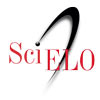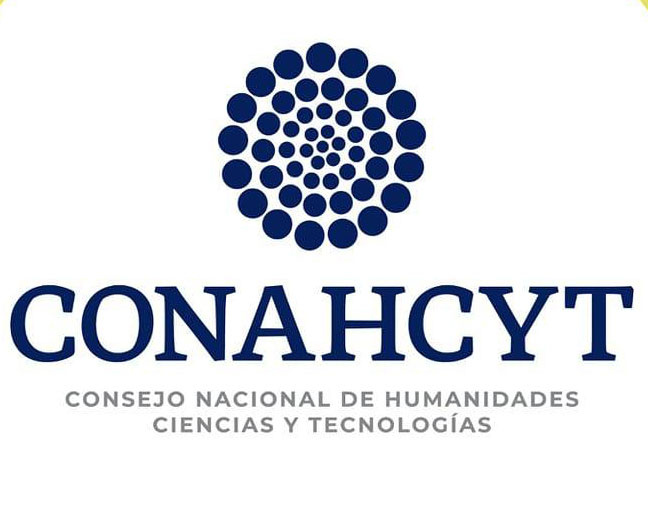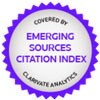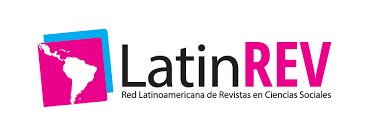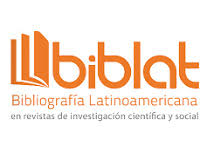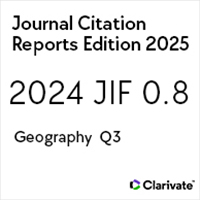
Ethics code
Code of ethics and best editorial practice guidelines
At Estudios Fronterizos, we are committed to developing processes in the journal in accordance with best editorial practices and publication ethics. The actors (editorial board, director, managing editor, reviewers and authors) involved in the publication process have the responsibility to assume an ethical and honesty behavior in accordance with their role in this process. Our purpose is to prevent and discourage misconduct when participating in the different areas of journal management and content publication.
The guidelines set out in this document are based on the recommendations made by the Committee on Publication Ethics (cope). More information at publicationethics.org. The responsibilities of the actors participating in the publication are described below:
Responsibilities and best practices of the journal
The director, in his role of directing the journal Estudios Fronterizos, assumes the following responsibilities that he shares, as appropriate to his role, with the members of the editorial board and the managing editor.
- Publication decisions: The decision in Estudios Fronterizos to accept or reject an article to be published will be based solely on the academic relevance, scientific rigor and quality of the documents. Consideration will be given to aspects such as the originality, clarity and contribution of the research, as well as its adaptation to the scope of the journal.
- Honesty and transparency: It is the responsibility of the journal to ensure that the review is made in a rigorous and transparent manner. A description of this process will be made in our peer-review policies, and each article will include submission, acceptance and publication dates. The evaluations will be sent to the authors as they were done by the reviewers, unless they contain words that offend or are not written in constructive terms. If this is the case, those parts will be eliminated or the complete review will be discarded, assigning the article to a new reviewer.
- Competence: The director ensure the selection of the most qualified reviewer and specialists in each subject. When required, the director will request support from the members of the editorial board for the assignment of article evaluators.
- Confidentiality: No information will be disseminated or shared regarding the articles submitted for publication to other people that are not related to the publication processes of the journal.
- Anonymous evaluation: To ensure an anonymous peer-review as befits the double-blind system, we will make sure not to include information that reveals the identity of the author. In the same way, the name of the reviewers will be kept anonymous.
- Timeliness of the publication process: The authors will be informed about the status of their article during the peer-review process. The estimated times of each stage will be declared in the description of the peer-review process.
- Ethics in research: It is the responsibility of Estudios Fronterizos to ensure that the articles published in the journal are the product of research that complies with international ethical standards. If is identified that misconduct was committed, information manipulation or unethical practices in a proposed article, it will be rejected. In case the document is already published, it will be retracted. When required, corrections, clarifications and retractions will be published.
- Copyrights: The journal must protect copyright, and encourage the elimination of practices that may affect it.
- Authorship: Estudios Fronterizos will monitor that the following authorship criteria are met; the articles must be signed by a maximum of three authors; include only the names of those who made a significant contribution in the preparation of the document; and recognize as authors all those who did important work in the article.
Responsibility and best practices related to the authors
To submit an article to Estudios Fronterizos, authors should consult and adopt the ethical guidelines and editorial policies defined and available for viewing on the journal's website. When submitting a manuscript, the authors assume that they read and accept these guidelines.
- Originality: When submitting an article to the journal, the authors, through a letter of authorship, will declare that their work is an original contribution, the article has not been previously published or is being submitted simultaneously to another publication and the signatories are the exclusive authors of the proposed text.
- Copyrights: The authors will respect the copyright, without carrying out plagiarism practices, will correctly cite their sources and will incorporate the references of the documents on which they were based to elaborate the article.
- Authorship: The order of authorship will be defined fairly by the participants according to the contribution that each one made. Only those who have made a significant contribution in the preparation of the document will be included as coauthors. The final version submitted must be reviewed and approved by all authors. Authors are responsible for the text.
- Redundant or multiple publication: Articles that essentially describe the same research with minor changes (salami publication) should not be published in more than one journal, this behavior is unethical and unacceptable.
- Ethics in research: Authors should take care of the ethical guidelines when working on their research with human beings and make these considerations explicit in the article when the case so requires.
- Confidentiality of personal data: The submitted articles must respect the confidentiality of information related to the individuals and organizations that were part of the investigation, especially if sensitive data was handled.
- Conflict of interests: When appropriate, a statement that reveals any conflict of interest or other nature that may influence the results or the interpretation of your work will be included. If there was one or several sources of funding in the research that gave rise to the article, these should be disclosed.
Responsibility and best practices related to reviewers
- Objectivity: The reviewers will carry out a serious and professional evaluation of the articles, considering only their scientific merit, originality and theoretical and methodological congruence. In the review report format that will be provided, your observations will be included with solid arguments and expressed in an objective manner, prioritizing constructive criticisms that help improve the manuscript. Personal or offensive criticism is not acceptable.
- Respect for the times: The review must be delivered on the date agreed with the journal, if it is not possible, you should contact the director and request an extension of the deadline or decline to make the opinion.
- Competency: If the reviewers considers that the document they were asked to evaluate is outside the thematic area of their competence or does not feel qualified to make the review, they must notify the director and decline to continue with the review process.
- Responsibility for plagiarism: Reviewers are obliged to advise the director whether important sections of the article have been previous published, or contributions of authors that are not duly cited are identified.
- Conflict of interests: The reviewers have the obligation to let the director know if there is a conflict of interest that prevents them from making an objective and impartial evaluation of the manuscript.
- Confidentiality: Regarding the confidential nature of the peer-review process, the reviewers agree not to disseminate the manuscript under review. They can´t use it in their own work, comment it, share it or involve other people in their review.
Identification of misconduct in the publication
The cases of misconduct in the scientific publication can be identified by the director, managing editor, editorial board members, reviewers and readers. The accusations that are notified must be supported with evidence. Once given the situation, the journal has a duty to act, even with articles not yet published as with those already published.
- Plagiarism: Plagiarism is not acceptable in any of its forms, and as a measure to prevent and discourage it, Estudios Fronterizos informs the authors the use of the Ithenticate software to identify similarities. The articles will be reviewed to identify coincidences with other texts and the correct citation of the sources. If a document proposed for publication has a high percentage of similarity (more than 30%) or contains fragments repeatedly without citing the source, it will be rejected.
- Duplicate submission or redundant publication: Multiple presentations or publication of the same document in different journals are considered a serious misconduct.
- Incorrect attribution of authorship: Only those who make a significant contribution in the preparation of the article should be recognized as authors. Or, authorship must be recognized to all those who made important contributions in the preparation of the document.
- Ethics in research: Regarding the persons involved in the research, especially if they are vulnerable populations or sensitive information is handled, the author should act in an ethical manner.
- Citation manipulation: Director and authors should not promote or incur in unjustified self-citation with the primary goal of boosting citation rates. Excessive self-citation or citation agreements between authors are unacceptable.
Support mechanisms and management of misconduct in the publication
For all the situations described above, cope flowcharts will be reviewed and applied as appropriate to the case and the possibilities of monitoring them by the journal. As a first, communication will be established with the corresponding author and, if necessary, with all the authors. If a satisfactory answer is not given, the institution of affiliation of the authors could be contacted. The director, in agreement with the editorial board members, will make a decision based on the severity of the case and the evidence presented.
- Retractions: If there is certainty of a serious misconduct, and the authors did not present evidence to defend the case, the article, if it has not yet been published, will be rejected. In case that the article has already been published, the file will not be removed from the table of contents, but a note indicating the retraction and its reason will be added. The retraction may be for the entire document or parts of it. As far as possible, the status of the document will be notified to the databases that index Estudios Fronterizos.














